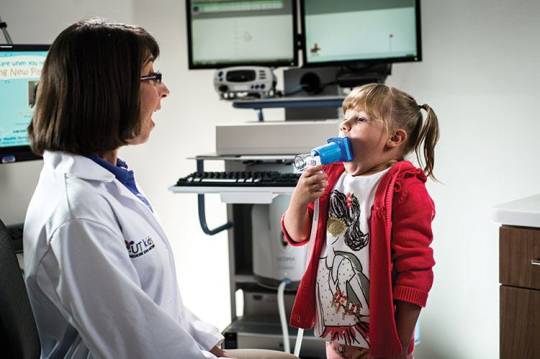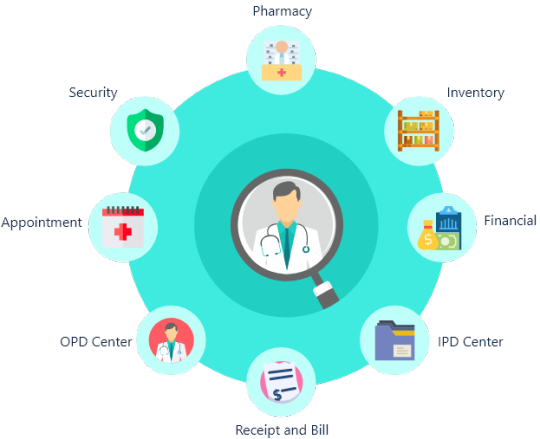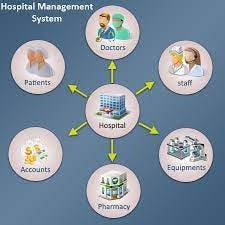#EMR for pulmonologists
Explore tagged Tumblr posts
Text
Enhance your pulmonology practice's efficiency with 1st Providers Choice’s specialized EMR software. Designed to streamline patient management, documentation, and billing, our EMR solution helps pulmonologists provide high-quality care while reducing administrative burdens. Improve patient outcomes, ensure compliance, and simplify workflow with our customizable, user-friendly system tailored to meet the unique needs of pulmonology clinics. Discover how our Pulmonology EMR system can revolutionize your practice today.
#Pulmonology EMR software#EMR for pulmonologists#Best EMR for pulmonology#Customizable pulmonology EMR#Pulmonology practice management software#Pulmonology clinic software#Pulmonology billing software
0 notes
Text
Enhancing Pediatric Pulmonology Care with QMe EMR and Hospital Management System

In the ever-evolving landscape of healthcare, the role of technology has become increasingly crucial. For specialized medical fields like pediatric pulmonology, the integration of advanced healthcare software and management systems is transforming patient care. This article explores how the QMe EMR (Electronic Medical Records) and Clinic/Hospital Management system is revolutionizing the field of pediatric pulmonology.
Pediatric Pulmonology: A Vital Branch of Healthcare

Pediatric pulmonology is a branch of medicine dedicated to the diagnosis, treatment, and prevention of respiratory conditions in children. These conditions can range from common issues like asthma and bronchitis to more complex diseases such as cystic fibrosis. Ensuring the best care for young patients in this field is of paramount importance. This is where healthcare software and systems come into play.
The Role of Healthcare Software in Pediatric Pulmonology

The adoption of healthcare software, particularly Electronic Medical Records (EMRs), has drastically improved the quality and efficiency of care in pediatric pulmonology. EMRs like QMe provide a comprehensive digital platform for recording, managing, and retrieving patient information. The advantages are manifold:
Streamlined Data Management:
QMe EMR allows pulmonologists to consolidate patient data in one secure location. This includes medical history, test results, and treatment plans, ensuring quick access to crucial information during patient visits.
Improved Communication:
EMRs facilitate efficient communication between healthcare providers, such as pediatric pulmonologists, primary care physicians, and specialists. This real-time collaboration ensures that the patient receives holistic care.
Enhanced Diagnostics:
The healthcare system embedded within QMe EMR supports data analysis and aids in the diagnosis of respiratory disorders. It allows physicians to cross-reference patient data and collaborate on treatment options.
Efficient Workflow:
EMRs streamline administrative tasks such as appointment scheduling and billing, allowing healthcare professionals to focus on patient care.
Clinic/Hospital Management System: A Holistic Approach to Pediatric Pulmonology

Beyond Electronic Medical Records, the clinic/hospital management system is a fundamental component of modern healthcare systems. These systems, such as QMe, extend their utility to streamline all aspects of clinic or hospital operations:
Patient Scheduling:
Efficient appointment scheduling ensures that pediatric pulmonologists can allocate the right amount of time for each patient, reducing wait times and improving overall patient satisfaction.
Resource Allocation:
The system optimizes the allocation of resources, such as medical equipment, staff, and rooms, to ensure the smooth operation of the clinic or hospital.
Billing and Accounting:
Hospital management systems simplify the billing process, reducing errors and ensuring that patients receive accurate bills for the services rendered.
Inventory Management:
In pediatric pulmonology, managing a stock of medications, respiratory devices, and other equipment is crucial. These systems track inventory levels, helping maintain the necessary supplies for patient care.
The Comprehensive Healthcare Solution: QMe EMR and Clinic/Hospital Management System

The integration of QMe EMR with the clinic/hospital management system creates a comprehensive healthcare solution that revolutionizes pediatric pulmonology. It offers a range of benefits:
Improved Patient Outcomes:
By enhancing data management and diagnostic capabilities, this integrated system ensures that pediatric pulmonologists can make well-informed decisions, ultimately leading to better patient outcomes.
Efficiency and Productivity:
The streamlined workflow provided by QMe reduces administrative burdens, allowing healthcare professionals to focus on patient care.
Enhanced Communication:
With the ability to share data and insights easily, healthcare teams can work together more effectively to provide the best care for young patients.
Enhanced Security:

In conclusion, the incorporation of QMe EMR and Hospital Management System into the field of pediatric pulmonology is a testament to the transformative power of healthcare software and systems. The benefits of these technologies extend to improved patient care, more efficient healthcare operations, and the peace of mind that comes with secure and organized data management. As technology continues to advance, pediatric pulmonologists and their patients can look forward to a future of even more precise, efficient, and compassionate healthcare.
0 notes
Text
Revolutionizing Pulmonology with QMe EMR and Healthcare Management Systems

In the ever-evolving landscape of healthcare, staying up to date with the latest technological advancements is imperative for providing optimal patient care. Pulmonologists, specialists in respiratory health, are no exception to this rule. One key innovation that has been making waves in the healthcare industry is the QMe Electronic Medical Record (EMR) system, coupled with an efficient Hospital Management System. In this article, we will explore the significance of QMe EMR and how it has transformed the healthcare management system, particularly in the field of pulmonology.
The Power of Healthcare Management Systems

Healthcare management is the cornerstone of a well-functioning medical facility, be it a small clinic or a large hospital. Managing appointments, patient records, billing, and other administrative tasks can be overwhelming without the right tools. This is where Healthcare Management Systems come into play.
These systems are designed to streamline operations, enhance patient care, reduce paperwork, and improve overall efficiency. They encompass various components, including Electronic Medical Records, appointment scheduling, billing, inventory management, and more. The integration of these components allows for the seamless flow of information, enabling healthcare providers to deliver high-quality care.
The Rise of Electronic Medical Records

One of the central components of any modern Healthcare Management System is the Electronic Medical Record (EMR). EMRs have replaced traditional paper records in many healthcare settings, including pulmonology, for a multitude of reasons.
EMRs provide secure and easily accessible patient data. They offer real-time updates, reducing the risk of errors and enabling quick decision-making. This is particularly valuable in pulmonology, where patients may have complex medical histories and require immediate attention during emergencies. QMe EMR, in particular, has gained prominence for its user-friendly interface and comprehensive features.
QMe EMR: A Game Changer for Pulmonologists

Pulmonologists, who diagnose and treat conditions such as asthma, chronic obstructive pulmonary disease (COPD), and lung cancer, have witnessed a significant transformation in their practice with the adoption of QMe EMR. Here are some ways in which QMe EMR has benefitted pulmonologists:
Comprehensive Patient Records

QMe EMR allows pulmonologists to access a patient’s complete medical history, including past lung function tests, X-rays, and medications, in a matter of seconds. This information is invaluable when making diagnoses and treatment decisions, as it offers a holistic view of the patient’s health.
Efficient Diagnosis and Treatment

With QMe EMR, pulmonologists can quickly record and analyze data from pulmonary function tests, bronchoscopy procedures, and other diagnostic tests. This expedites the diagnostic process and helps in formulating effective treatment plans.
Streamlined Workflow

The Hospital Management System integrated with QMe EMR ensures a streamlined workflow for pulmonology clinics. It automates appointment scheduling, manages billing, and even monitors inventory for essential supplies like respiratory medications and equipment.
The Future of Pulmonology and Healthcare Management

As healthcare continues to evolve, the role of healthcare management systems in pulmonology cannot be overstated. QMe EMR and Clinic/Hospital Management Systems have become indispensable tools for pulmonologists, enhancing their ability to provide efficient, evidence-based care to patients.
With ongoing advancements in technology, we can expect even more integration of AI and data analytics in EMR systems, enabling pulmonologists to make more precise diagnoses and tailored treatment plans. Moreover, interoperability between different healthcare systems will promote seamless data exchange, allowing for better coordination between pulmonologists and other healthcare providers.
In conclusion, the incorporation of QMe EMR and Healthcare Management Systems has significantly improved healthcare management in the field of pulmonology. These systems offer pulmonologists the tools they need to deliver higher quality care, streamline their operations, and contribute to better patient outcomes. As technology continues to advance, pulmonologists and healthcare providers in general can look forward to even more efficient and effective healthcare management systems, further elevating the standards of patient care.
0 notes